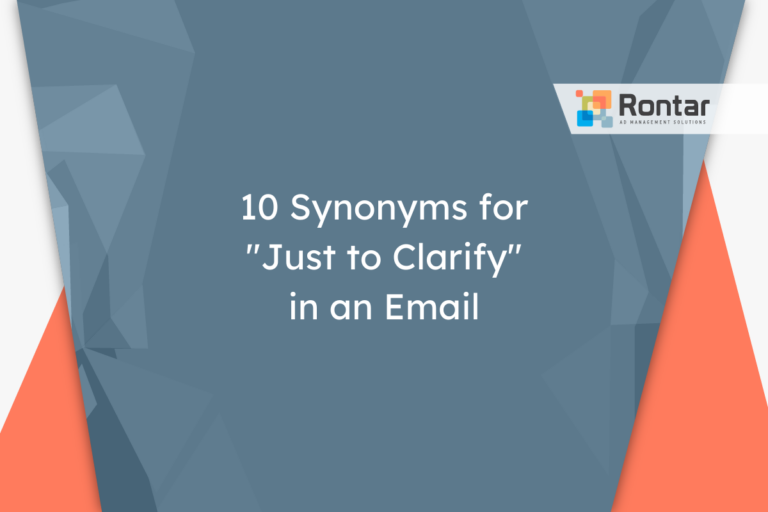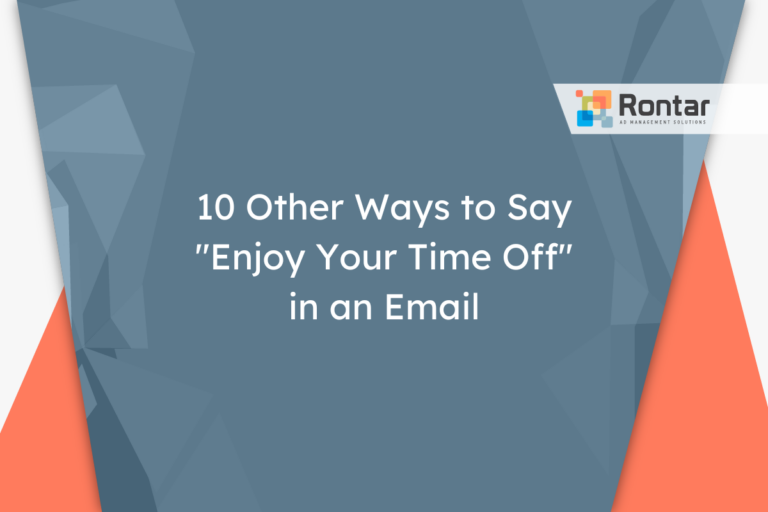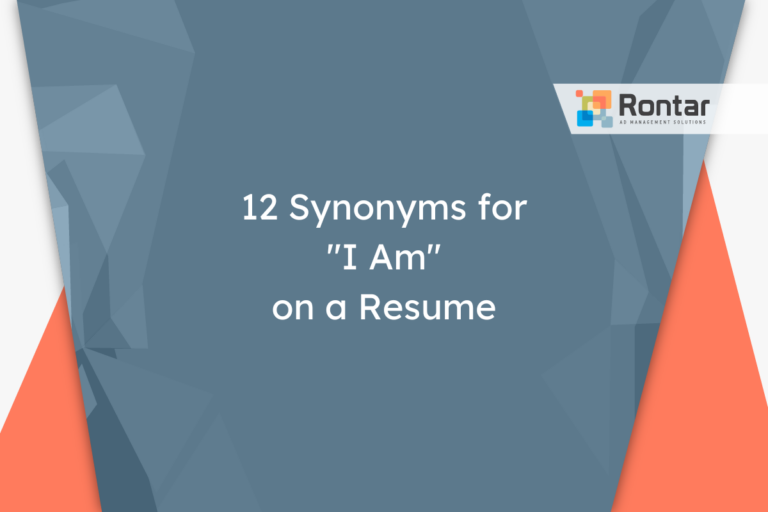10 Other Ways to Say “I Don’t Know”

In any workplace, not knowing the answer to a question is common. However, how you communicate your uncertainty can impact your professional image.
This article introduces ten alternative phrases to “I don’t know” that you can use in professional emails, maintaining a positive and constructive tone. Each alternative is explained, showing when and how to use it effectively in various situations.
Is It Professional to Say “I Don’t Know”?
Saying “I don’t know” in the workplace can indeed be considered professional, formal or informal, and polite, depending on how and when it is used. It’s all about context. This phrase shows honesty and a readiness to find a solution, rather than pretending to have all the answers. However, it’s crucial to know your audience and how they might perceive your honesty.
It can be suitable in meetings, emails, and direct conversations with colleagues, managers, or clients, as long as it is followed by a constructive plan to get the needed information. This phrase shows humility and a willingness to learn and is generally well-received in a culture that values transparency and adaptability.
Email example:
Dear Emily, Thank you for your question about the annual budget forecast. I don't know the answer at this moment, but I will find out more information and get back to you by the end of tomorrow. Best, Mark
Pros:
- It shows honesty and integrity.
- It opens the door for further learning and growth.
- It builds trust with your colleagues and clients.
Cons:
- It may sometimes be perceived as a lack of knowledge or preparation.
- Overuse of the phrase could undermine your credibility.
- Not all cultures or industries may view it as equally acceptable.
While “I don’t know” is a straightforward and honest response, you might want to use an alternative phrase to soften the message or sound more proactive. This doesn’t mean avoiding the truth but presenting it in a way that highlights your willingness to find a solution.
10 Other Ways to Say “I Don’t Know”
Here are ten professional alternatives you can use instead of “I don’t know” in workplace emails:
- I’m not sure
- Let me check on that
- That’s a good question; let me find out
- I’ll get back to you on that
- I’ll have to look into it
- That’s something I’ll need to investigate
- I’m not certain, but I will find out
- Let me confirm that for you
- That’s something I’m not familiar with, but I will learn more about it
- I have to check with someone else
1. I’m not sure
Compared to “I don’t know,” “I’m not sure” sounds a bit softer and less final. It implies that while you might not have the answer at this moment, you could potentially find out. This alternative is professional and polite enough to use with colleagues and clients alike, especially when you need a bit more time to gather information. It’s suitable for emails and verbal communication in most professional settings.
Email sample:
Dear Thomas, Regarding your question about the project timeline, I'm not sure of the exact dates. I will check the project plan and inform you accordingly. Best, Laura
2. Let me check on that
This phrase suggests proactivity and a willingness to find an answer, making it slightly more engaging than the original. It’s professional, yet conversational, fitting well in both internal and client-facing communications. This synonym is perfect when you anticipate being able to provide a solid answer after consulting with a team member or reviewing documentation.
Here’s an example:
Dear Alex, I received your query about our software updates. Let me check on that and I’ll get back to you by tomorrow. Warm regards, Jordan
3. That’s a good question; let me find out
This alternative complements the asker before admitting a gap in knowledge, which can help maintain a positive tone in the conversation. It’s seen as polite and professional, and is ideal for situations where you want to reassure the recipient that their question is valued. This approach works well in both emails and face-to-face discussions.
Email example:
Dear Michelle, Thank you for your inquiry about the annual report specifics. That's a good question; let me find out for you. I should have an update by next week. Sincerely, Derek
4. I’ll get back to you on that
This phrase is a direct and professional way to acknowledge that while you don’t have the information at hand, you commit to following up. It’s suitable for emails where you need some time to provide a comprehensive answer. This alternative is versatile and can be used in a variety of professional contexts.
Example:
Dear Olivia, Your question needs a bit more research. I'll get back to you on that once I have all the necessary details. Best wishes, Ethan
5. I’ll have to look into it
This option implies a need for in-depth investigation, presenting the speaker as diligent and thoughtful. It’s a professional and formal alternative, well-suited for complex queries where an immediate answer can’t be provided. This phrase is effective in written communications, especially when dealing with nuanced subjects.
Email sample:
Dear Haley, I saw your note about the discrepancy in the quarterly sales report. I'll have to look into it and get back to you with a detailed explanation. Regards, Nathan
6. That’s something I’ll need to investigate
Similar to “I’ll have to look into it,” this phrase denotes the need for a comprehensive review. It’s slightly more formal and emphasizes the effort you’ll put into solving the issue. It’s especially fitting for inquiries that require verification or evidence, providing a professional tone that reassures the recipient of your dedication.
Here’s an example:
Dear Simon, Regarding the issues raised in your last email, that's something I'll need to investigate. I aim to have more information by the end of the week. Best, Isabel
7. I’m not certain, but I will find out
This phrase balances uncertainty with a promise of action. It’s professional, yet informal enough to use with familiar colleagues or in a less rigid corporate environment. This alternative is excellent for when you wish to convey a sense of responsibility and initiative.
Email example:
Dear Jamie, You asked a challenging question about our expansion plans. I'm not certain, but I will find out and provide you with the details as soon as possible. Kind regards, Rob
8. Let me confirm that for you
This alternative exudes confidence and is more formal than some other options. It’s particularly useful when you are fairly sure of the answer but need to verify details before providing a definitive response. This phrase works well in professional emails, calls, and meetings, aligning with a proactive and thorough work ethic.
Example:
Dear Danielle, You inquired about the next phase of our marketing strategy. Let me confirm that for you and I’ll send an update by this Wednesday. Warm regards, Felix
9. That’s something I’m not familiar with, but I will learn more about it
This response is refreshingly honest and indicates a willingness to grow and learn. It’s more informal but remains professional and polite. It’s great for fostering a culture of continuous improvement and curiosity. This alternative is suitable for internal emails or communications with long-standing clients who appreciate transparency.
Here’s an example:
Dear Colin, Your question about the new data analysis tools is something I'm not familiar with, but I will learn more about it and get back to you with accurate information. Cheers, Samantha
10. I have to check with someone else
This phrase clearly indicates that the answer lies outside your realm of expertise or authority, and you’ll need to consult with a colleague. It is a professional and polite way to manage expectations without leaving the recipient in the dark. This alternative is best used when collaboration with other departments or team members is necessary to address the query.
Email sample:
Dear Zoe, Thank you for your detailed questions about the integration process. I have to check with someone else to provide you with the most accurate and updated information. I will follow up by next Monday. Best regards, Emma
Final Thoughts
Admitting you don’t have all the answers is not a sign of weakness but of honesty and professionalism. The ten alternatives to “I don’t know” provided in this article can help you communicate more effectively and constructively in the workplace. By choosing the right phrase, you can show your willingness to find a solution and maintain a positive relationship with colleagues and clients.






